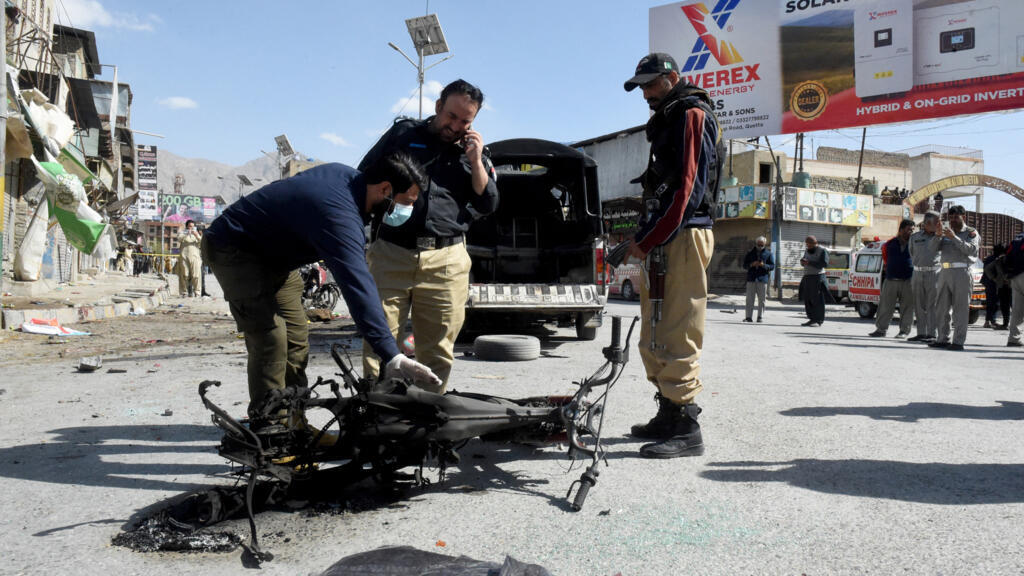
俾路支独立人士致信警告印度外长 - 中巴深化战略联盟
俾路支活动人士、自称为“俾路支斯坦共和国、俾路支代表”的米尔·亚尔(Mir Yar Baloch)周四通过社媒平台向印度外交部长苏杰生(S. Jaishankar)致公开信,声称“俾路支斯坦共和国认为巴基斯坦和中国之间不断升级的战略联盟极其危险”,并警告称,北京与伊斯兰堡合作,已将中巴经济走廊(CPEC)推进到最后阶段。所谓俾路支斯坦为三个国家所分治:巴基斯坦、阿富汗及伊朗。当中无论按面积或人口计算,最大的部分是巴基斯坦的俾路支省,亦是该国最大的省份。近年来,当地发生了多起针对中国人和项目的恐怖袭击事件。
 巴基斯坦俾路支省的分离主义叛乱已持续数十年,该省矿产资源丰富,与阿富汗和伊朗接壤,武装分子在该省袭击国家安全部队、外国公民和非本地居民。
巴基斯坦俾路支省的分离主义叛乱已持续数十年,该省矿产资源丰富,与阿富汗和伊朗接壤,武装分子在该省袭击国家安全部队、外国公民和非本地居民。 据悉,俾路支民族主义领导人已于去年5月宣布脱离巴基斯坦独立。米尔·亚尔周四宣布,其口中的俾路支斯坦共和国将于2026年第一周庆祝“2026年俾路支斯坦全球外交周”,使俾路支斯坦能够直接与世界各国进行接触。
在新年当天发布于X平台、致苏杰生的公开信中,米尔·亚尔声称,“俾路支斯坦共和国认为巴基斯坦和中国之间不断升级的战略联盟极其危险,我们警告,中国与巴基斯坦合作推进的中巴经济走廊已进入最后阶段”。
 米尔·亚尔续称,“若不进一步增强俾路支斯坦防卫与自由部队的能力,且继续沿袭长期忽视的模式,则中国可能在数月内向俾路支斯坦部署其军事部队。在未经六千万俾路支人民同意的情况下,中国靴子踏上俾路支斯坦土地,将对印度与俾路支斯坦的未来构成难以想象的威胁与挑战”。米尔·亚尔在信中全篇以莫迪政府所推崇的“巴拉特”国名来称呼印度。
米尔·亚尔续称,“若不进一步增强俾路支斯坦防卫与自由部队的能力,且继续沿袭长期忽视的模式,则中国可能在数月内向俾路支斯坦部署其军事部队。在未经六千万俾路支人民同意的情况下,中国靴子踏上俾路支斯坦土地,将对印度与俾路支斯坦的未来构成难以想象的威胁与挑战”。米尔·亚尔在信中全篇以莫迪政府所推崇的“巴拉特”国名来称呼印度。
 中国和巴基斯坦多次否认中巴经济走廊涉及军事层面的指控,坚称该项目本质上是经济项目。然而,印度一直反对中巴经济走廊,指其途经巴基斯坦控制的查谟和克什米尔地区,引发了主权和安全方面的担忧。
中国和巴基斯坦多次否认中巴经济走廊涉及军事层面的指控,坚称该项目本质上是经济项目。然而,印度一直反对中巴经济走廊,指其途经巴基斯坦控制的查谟和克什米尔地区,引发了主权和安全方面的担忧。
米尔·亚尔在信中还重申了对印度及其政府坚定不移的支持,以促进“友谊、信任和共同利益,包括和平、繁荣、发展、贸易、防务、安全、未来能源挑战以及减轻隐蔽威胁”。
 米尔·亚尔写道:“过去七十九年来,俾路支斯坦人民饱受巴基斯坦的国家占领、国家支持的恐怖主义和骇人听闻的侵犯人权暴行之苦。现在是时候从根源上根除这一顽疾,确保我们国家持久和平与主权了”。
米尔·亚尔写道:“过去七十九年来,俾路支斯坦人民饱受巴基斯坦的国家占领、国家支持的恐怖主义和骇人听闻的侵犯人权暴行之苦。现在是时候从根源上根除这一顽疾,确保我们国家持久和平与主权了”。
此外,米尔·亚尔在信中赞扬了印度的“辛杜尔行动”,即去年5月发生的印巴冲突中,印方对巴基斯坦实施的代号为“辛杜尔行动”的军事行动,该行动旨在打击巴基斯坦和巴控克什米尔地区的恐怖基础设施。此前,印控克什米尔地区的帕哈尔加姆发生恐怖袭击造成26人死亡。米尔·亚尔声称,这些打击行动展现了“堪称典范的勇气和对地区安全与正义的坚定承诺”。
值得一提的是,中国外交部发言人周三宣布:应中共中央政治局委员、中国外长王毅邀请,巴基斯坦副总理兼外长达尔将于2026年1月3日至5日访华并举行第七次中巴外长战略对话。
伊斯兰堡方面,巴基斯坦外交部发言人安德拉比周四主持例行记者会。巴基斯坦AAJ电视台记者在会上问道,“上周,我们听到一个非常出人意料的消息:中国外长王毅阁下谈到了中国在印度和巴基斯坦冲突中进行的某种调解。我们知道,王毅是执政内阁的资深成员,而中国是本地区稳定的重要力量。那么,中国究竟进行了何种调解或外交斡旋?”
安德拉比回答说:“关于王毅外长的声明——据我了解,中国领导层与巴基斯坦领导层保持着密切联系,并在5月6日至10日的三天或四天里,以及可能在此前后,也与印度领导层进行了一些接触。我认为,这些以非常积极的外交交流为特征的接触,有助于缓和局势,维护地区和平与安全”。
安德拉比补充道,“因此,我相信中方对调解的描述是正确的。巴基斯坦方面也持相同观点,认为中国采取的外交手段是和平的外交,是促进繁荣与安全的外交,这也是在那三四天关键时刻为解决冲突而进行的诸多国际努力的共同特征。因此,我们支持中国外长就此事所作的表态”。
此外,安德拉比在记者会上证实,“巴基斯坦和中国将于2026年1月4日在北京举行第七次巴中外长战略对话。此次对话为外长级对话。应中国外长王毅的邀请,我国副总理兼外长将访问中国”。
新德里则否认了中方关于其在去年印巴军事冲突期间斡旋促成停火的说法。印度政府消息人士重申,是伊斯兰堡在“辛杜尔行动”后主动提出停火,不存在任何第三方斡旋。






















